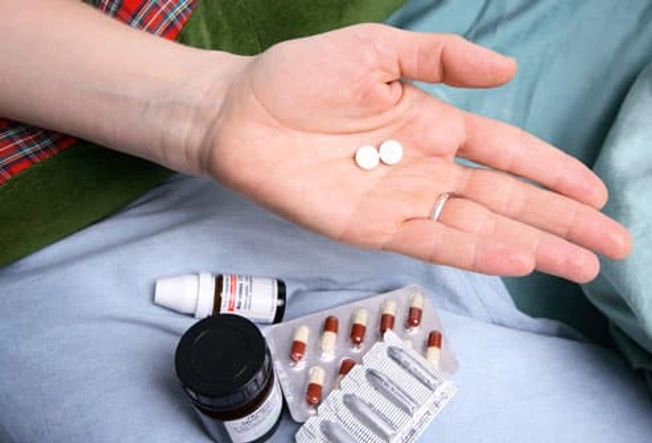- Overview
- Symptoms
- Causes & Risks
- Tests & Diagnosis
- Treatment
- Living With
- Complications
- Support & Resources
- Appointment Prep
- View Full Guide
Help Manage Your Crohn's Disease


Stay Active
Exercise can often help your Crohn's symptoms. It also strengthens your bones, muscles, and immune system. Physical activity is a great way to ease stress, too. Drink plenty of water before and after you exercise to prevent dehydration.

Take Your Meds
Many of the same drugs used to treat flares also help you control Crohn's disease. Some work on your immune system, or curb inflammation, or help prevent or treat infections. Your doctor will prescribe the drugs that you need based on your symptoms, the severity of your Crohn's disease, and what you have already tried. Take them exactly as your doctor prescribes.

Eat for Good Nutrition
Crohn's can make it harder for your body to absorb some vitamins and minerals, including vitamins A, D, E, and K, folate (folic acid), and vitamin B-12. You may also notice that you're sensitive to certain types of foods or have trouble if you get too much fiber. Ask your doctor to recommend a registered dietitian who can make a nutrition plan for you.

Take Time to Ease Stress
Stress is part of life for everyone. It may worsen your Crohn's symptoms. So make it a priority every day to relax, meditate, breathe deeply, and exercise. Do things you enjoy, and set limits to save your energy for what matters most to you. If stress still gets you down, talk with a counselor for pointers on how to get back on track.

No Smoking
Smoking makes Crohn's disease worse. It also can aggravate conditions linked to Crohn's, such as bone loss and eye problems. Many people try several times before they kick the habit for good, so keep trying! Your doctor can give you advice.

Stay Positive
Having an ongoing disease like Crohn's is a lot to handle. Find friends and family you can turn to for support. Make plans to do activities you enjoy. Be optimistic about what you can do, and realistic about what's too much. Look for ways to enjoy life. Talk to a counselor if you need more help.

Should You Take Supplements?
To meet your nutritional needs, your doctor may also recommend vitamin and mineral supplements. These may include extra calcium, vitamin D, vitamin B12, folic acid, and iron. Some people, especially children, may need to take liquid food-replacement formulas. Talk to your doctor before taking any supplements, even if they are "natural." Some may interfere with your Crohn’s treatments.

Stay on Top of Your Health
There's more to you than Crohn's, so stay on top of your overall health from head to toe. Keep up with all your medical appointments, not just the ones for Crohn's. And know that all the daily habits that help you handle your condition -- like exercise, diet, stress management, and not smoking -- are good for your whole body.